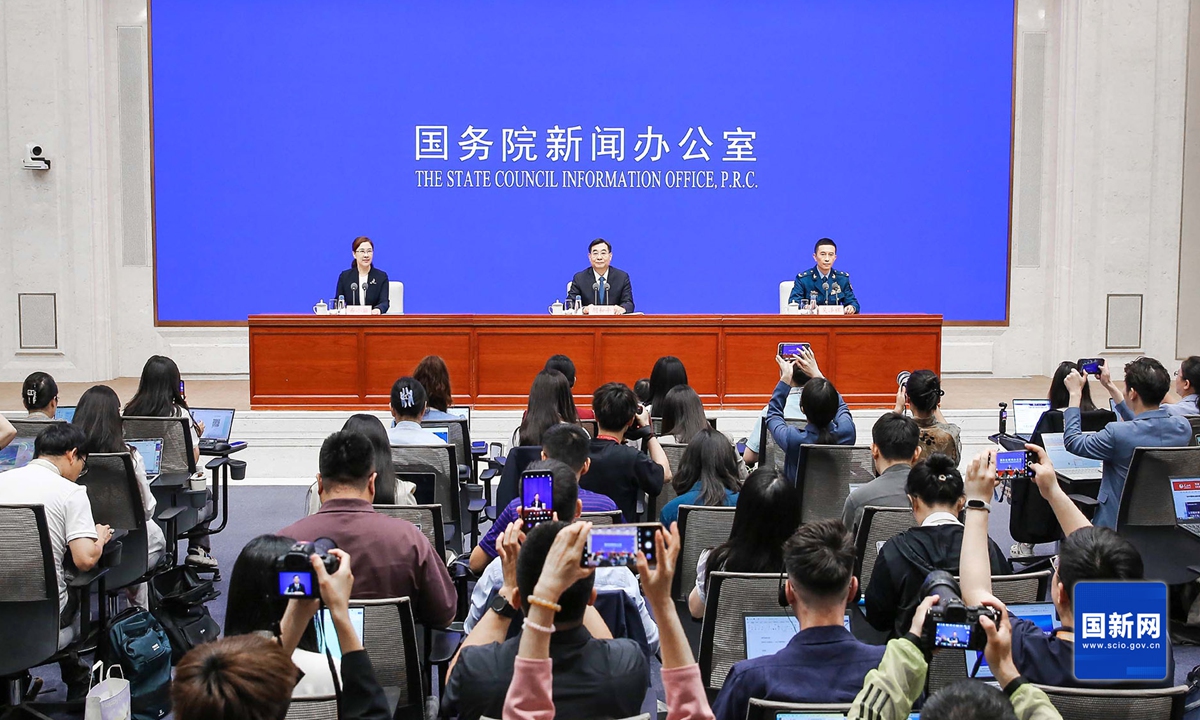Commentaries
Your Present Location: Teacher_Home> Ding Gang> CommentariesDing Gang: Marking WWII victory to understand China’s pursuit
Ding Gang: Marking WWII victory to understand China’s pursuit
Source: Global Times
Published: Jun 25, 2025 08:33 PM

Photo:www.scio.gov.cn
In September, China will solemnly commemorate the 80th anniversary of the victory in the Chinese People's War of Resistance against Japanese Aggression (1931-45) and the World Anti-Fascist War.
This event represents far more than a tribute to the sacrifices of generations past; it is a moment for the world to reexamine China's crucial role in shaping the outcome of World War II and the Chinese people's tireless pursuit of from that point until now. For China, remembering the war is never just about retracing the path to triumph. Nor is it, as some presume, an act of national self-congratulation or the display of great power status.
Instead, the true meaning lies in how an old Eastern nation, battered by foreign aggression and internal strife, struggled through a historical turning point to stand on its feet - choosing the hard road of independence and self-determination and, in so doing, adding vital new layers to the world's understanding of national awakening and rejuvenation.
To grasp the weight of this commemoration, one must recall the trajectory of modern Chinese history. From the mid-19th century onward, China has endured the wounds of imperial invasion and the humiliation of partition by foreign powers. The legacy of the Opium Wars and the century of humiliation that followed was not merely material devastation but also a lingering sense of national weakness and lost dignity.
Against this backdrop, the War of Resistance against Japanese Aggression marked both the culmination of long suffering and the first determined step toward collective resurgence. It was the crucible in which catastrophe and hope were forged - a last agony and the beginning of a new chapter.
The end of World War II did not simply close the door to outside aggression; it offered China a genuine possibility of charting its course for the first time in generations. This was a sweeping historical watershed that redefined the nation's prospects.
In the decades after 1949, emerging from ruins and possessing little but resolve, China embarked on a unique journey guided by the principle of independence - a journey marked by persistent challenges and self-reliant innovation. From the arduous campaigns to building up its industrial base to the transformative opening-up to the world in 1978, China's persistent quest for prosperity and power remained tightly interwoven with the imperatives of national dignity, self-respect and the prosperity of the people.
Reform and opening-up, in particular, became a fresh pivot point in China's history - not simply because of economic progress, but because the motivation for modernization was always deeply rooted in a determination to free ordinary people from the trauma of poverty and humiliation. The most important thing is that this goal is achieved through the self-reliance and hard work of the people.
Today, China stands as a nation with global influence and substantial national strength. However, unlike some imperial powers before it, the nation insists on a path of peaceful development - neither intent on exporting its model nor reshaping other societies in its image. There is a conviction, honed by bitter experience, that a once-traumatized nation can pursue modernization in a gradual, stable and peaceful manner.
What often eludes understanding in the West is precisely this: The tendency to analyze China's choices through a Western lens, assuming that China must follow the same power-driven and competitive trajectories that shaped the West's past.
Even today, some former imperial powers continue to promote the outdated logic of dividing Asia into spheres of influence and forced balances of power. China, on the other hand, is like a stable anchor in the midst of turmoil and noise. It is resilient and stable, exporting confidence to the world in its peaceful development.
Having known the pain of division and conquest, China recognizes the catastrophic consequences that would arise from carving up Asia along the lines of hegemony or confrontation. Instead, confronted by a rapidly changing region and a fluid global environment, China advocates for dialogue, cooperation and a more inclusive, mutually beneficial order that can safeguard the security and prosperity of all.
This is because since the victory of the War of Resistance against Japanese Aggression, China has never sought hegemony or power, let alone competed with any power for sphere and profit. The Chinese people firmly believe that prosperity and strength can only be created by themselves and through win-win cooperation.
Marking the 80th anniversary of the war's end is not a demand for privileged status on the world stage. Rather, it is a grounded reflection on the past and a declaration of intent for the future - a message that China's hard-won experience of overcoming adversity and striving toward renewal is something to be shared in hopes of forging a more peaceful, stable and prosperous Asia together.
The author is a senior editor with the People's Daily and currently a senior fellow with the Chongyang Institute for Financial Studies at the Renmin University of China.
Key Words: Ding Gang, WWII, China























































































 京公网安备 11010802037854号
京公网安备 11010802037854号





